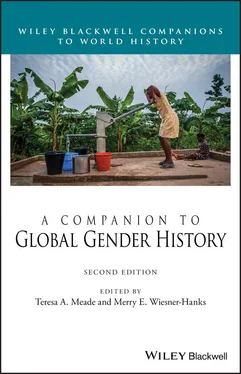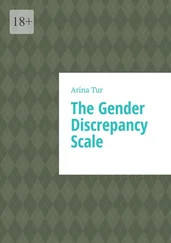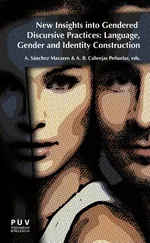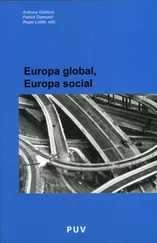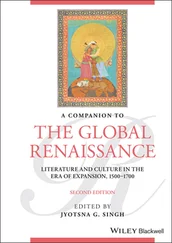The political ideas laid out in 1513 in Machiavelli’s The Prince and other writings constitute a shift in worldview concomitant with that of the Renaissance weltanshauung as a whole. In medieval times, the stability of any given European society depended upon the mutual dependence of individuals and groups of people, organized into estates, upon one another. Medieval Europeans imagined their social order to be a “great chain of being,” with God the Father and the angels at the top, followed by monarchs, aristocrats, and everyone else. Women held their various positions on the chain by virtue of their relationship to men as wives or daughters; as women, they were inferior and subordinate to men, as God had demonstrated in making Eve out of Adam's rib. The Renaissance introduced a different, more recognizably modern understanding of humans and human society in which autonomy, not dependence, was the goal for which men strived; freedom and self‐government on the part of individuals and of political communities became positive ends. Beginning in the sixteenth century, dependence took on overtones of femininity and childishness, characteristics to be avoided by men as much as possible, as they threatened to destroy men’s autonomy, their very manliness. Machiavelli expressed the concerns about masculinity felt by many of his contemporaries in his near obsession with the concept of virtu (or virtue).
Drawn from the Latin vir , which means “man,” virtue signified the capacity of human beings to govern themselves. Whether that capacity derived from God, from nature, or from reason, as later enlightenment thinkers would have it, the self‐knowledge and self‐command articulated in the ideal of virtue enabled “political man” to subordinate private interests to the public good. For Aristotle, as we have seen, the oikos , or landed household, provided the requisite material basis upon which independence and thus virtue and citizenship rested. Machiavelli substituted the bearing of arms for the possession of oikos . It was a preeminently masculine quality; indeed, the possession of virtue signaled the existence of a “real man,” a man ready and able to take action on behalf of himself and the political community (Pitkin, 1984). Just as virtue constituted the highest form of manliness for Machiavelli, its opposite, effeminato , signified the despicable qualities of passivity and dependence, the qualities most closely associated with women and those that disqualified them and men who resembled them from the realm of politics.
The most troubling and difficult challenges virtuous men faced in public, political life were those thrown up by fortuna , or fortune. The term has a long etymology, but in Machiavelli’s usage it conjures up forces – whether deriving from nature or from God – of unpredictability, caprice, mystery, and subversiveness that intrude on men’s efforts to control the circumstances of their lives and of their states. For Machiavelli, fortune is quite obviously gendered: arrayed against the masculine virtue, it acts as the feminine principle that must be “mastered” if men are to prevail in their personal and public lives. In this sense, politics constitutes an arena in which sexual battle takes place, in which the sexual conquest of women serves as the requisite outcome if virtuous men, whether princes or republicans, are to succeed in furthering their political goals. Women cannot be allowed to engage in political life for they will bring chaos, violence, and upheaval to societies. In one chapter of his Discourses entitled, “How a State Falls Because of Women,” Machiavelli warned that “women have caused much destruction, have done great harm to those who govern cities, and have occasioned many divisions in them…. I say, then, that absolute princes and governors of republicans are to take no small account of this matter” (Brown, 1988; Pitkin, 1984).
Machiavelli’s ideas about women and politics, however modern his theories about the political behavior of states and rulers might be, offered nothing new of substance to debates about women’s political participation. They closely resembled the thinking of classical Greeks, Romans, and Christian fathers, who believed that Eve's transgressions had stained all women with her sin. Construed as insatiably lustful, with sexual appetites greater than men's, women of the early modern period were perceived to be potential agents of damnation and destruction, requiring the mastery of men to preserve their propriety and honor, and the stability of the social and political order itself. It was not for nothing that Elizabeth I placed enormous emphasis upon her status as the virgin queen. In repudiating her sexuality, at least symbolically, she could better downplay her femininity and fashion herself a masculine ruler.
Perhaps the best known and most influential of all the tales spun out to explain and legitimate political authority is that of social contract theory, especially that associated with the writings of Englishman John Locke. His works justified the deposition of James II in 1688 by members of parliament on the grounds that the king had failed to live up to the terms of an original social contract by means of which human beings left behind an existence in the state of nature and established a civil society. This contract, he wrote, recognized the so‐called “natural” rights of men to life, liberty, and property, and bound its parties – the ruler and the ruled – to certain obligations, failing to live up to which the contract could be voided and the ruler overthrown. Locke’s ideas reverberated throughout eighteenth‐century Europe and North America, providing American colonists and French revolutionaries with a powerful legitimating tool as they built their arguments for their revolutionary actions. The doctrine of liberalism that emerged from Locke’s political theory also provoked the creation of a somewhat coherent argument about women sharing in its precepts and would provide nineteenth‐ and twentieth‐century feminists throughout the world with the ammunition they would need for their battles to bring women into the world of politics and gain for them recognition and respect as political actors.
Early seventeenth‐century Britons understood the world in which they lived to be fundamentally, properly, and irrevocably hierarchical. Hierarchies of gender mirrored those of status based on landownership in rural areas and on guild structures in the towns. Just as subjects of the crown knew themselves to be subordinate to their monarch, farmers knew themselves to be fully subordinate to their landlords, and apprentices and journeymen/women to their guild masters, so too women understood themselves to be subordinate to their fathers and their husbands. Patriarchal rule – whether it be of master to man or man to woman – prevailed (Kent, 1999).
Patriarchy in state and society as well as in the family rested on the ancient presumption that the male head of household held property not simply in his land and his animals, but in his wife and his children as well. Although never legally classified as chattel – property – of men, married English, Welsh, and Scottish women faced restrictions in common law that rendered them, for all intents and purposes, the property of their husbands. At the very least, common law doctrines institutionalized the inferiority and subordination of women to men. Under the law of coverture, unique to England and its colonies, married women had no legal existence apart from their husbands: they had no legal rights to property, to earnings, to freedom of movement, to conscience, to their bodies, or to their children; all belonged to their husbands. If a woman was raped, the crime was perceived as a form of theft, not from her, but from her husband or male relatives; cases of adultery were prosecuted only in those instances where the woman involved was married. Women lost their names when they married. All of these circumstances combined to suggest that women were the property of men, in fact if not in law. Certainly they meant that women did not enjoy the autonomy, the independence, that was a vital prerequisite for formal political participation (which, indeed, most men did not possess either, though not because they were excluded by law). By 1600, only in rare and exceptional cases did individual women vote for or hold public office.
Читать дальше
